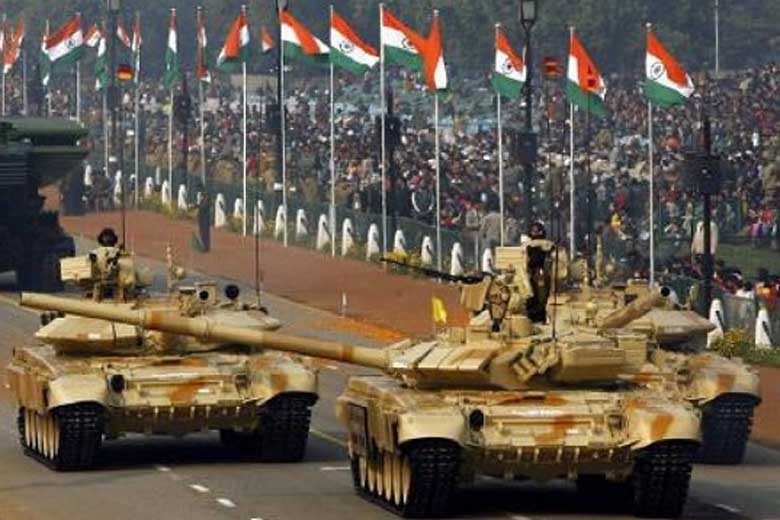Privatisation of defence sector
May 13, 2017 | Expert Insights

Defence Minister Arun Jaitley held extensive dialogues with the representative of defence arms of groups including Larsen and Toubro, Ashok Leyland, Mahindra and Mahindra, Reliance Infra, Tata group, Adani Group and representatives of Chambers of Commerce and Industry (CII) on the anticipated Strategic Model for bringing in private sector in defence manufacturing to produce military platforms like fighter jets and submarines in India. Under this model, government proposes to boast the private participation under Make in India framework and create domestic expertise in key areas, specifically, fighter aircraft, helicopters, submarines, and armored vehicles & main battle tanks.
SP MODEL
The Strategic Model was proposed by the Dhirendra Singh Committee in July, 2015. The model was introduced to outspread ‘Make in India’ initiative in the defence sector. The defence minister stated that the proposed strategic partner model is intended to enhance competition, increase efficiencies, facilitate faster and more significant absorption of technology. Also to create a tiered industrial ecosystem, ensure development of a wider skill base, trigger innovation and enable participation in global value chains as well as promote exports.
WHY PRIVATIZATION?
The Indian Defence industry was stringently limited to Public Sector undertaking until 2001 when the Vajpayee Government, in an attempt to encourage Indigenous Defence production, allowed 100% private Sector Participation and allowed FDI upto 26%. India is the largest importer of weapons in the world. India’s current requirements on defence are catered largely by imports. Under ‘Make in India’ initiatives government has revised the current defence procurement policy with emphasis on reduction in the import content of weapon system and defence equipment. The existing stakeholders DO NOT make high end products such as aircrafts, submarines, tanks etc. Therefore, it will take a lot of time for Indian manufacturers to establish themselves and then enter into the high end product market since most of these products are highly specialized and involve massive R&D investments for a single product.
ANALYSIS
The corruption scams, namely, Bofors scandal, submarine deals, chopper deal etc. raises the question about the defence sector in the country. For past 3 times, India has gained the title of the largest importer of weapons in the world. Countries like China have started developing its defence sector but India still depends upon the PSU’s like Defence Research and Development Organization (DRDO). Currently FDI in the sector stand at 26% to 49%, however poor state and quality of equipment forces to rethink the limit. Increasing the limit of FDI would allow bringing in best technology. With the expertise of foreign players, indigenous firms would get a chance to enhance their capabilities and bring self-sufficiency. Many developed countries have witnessed growth in their defence sector allowing 100% FDI.
Considering, the internal problems and disputes that India faces such as terrorism in Kashmir, Maoist in North-East; involvement of FDI would jeopardize the security of the nation. Privatization would lead to the emergence of profit motives among the players leading to illegal supply of weapons to these groups. Therefore public private partnership would be a better option in order to avoid the illegal supply of weapons or the private players should just develop the components and not full arms to avoid such situation.
ASSESSMENT
Indian Government should not privatize the defence sector due to loss of complete control. Private companies are profit oriented which could lead to leaking of information to the rival nations and illegal supply of ammunitions. Sharing of the information such as source design and code with the countries which are not aligned with India’s interests can be damaging. Another reason to go against FDI is that entry of foreign players in the market will suppress the indigenous arms producing industries. There is a grave concern about defence PSU’s ability to face competition posed by foreign companies.








Comments